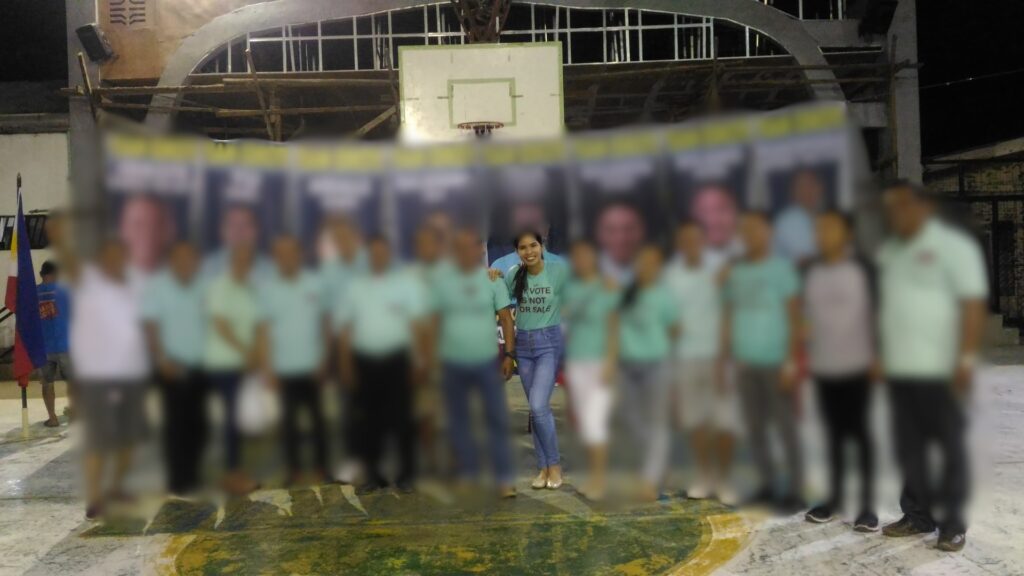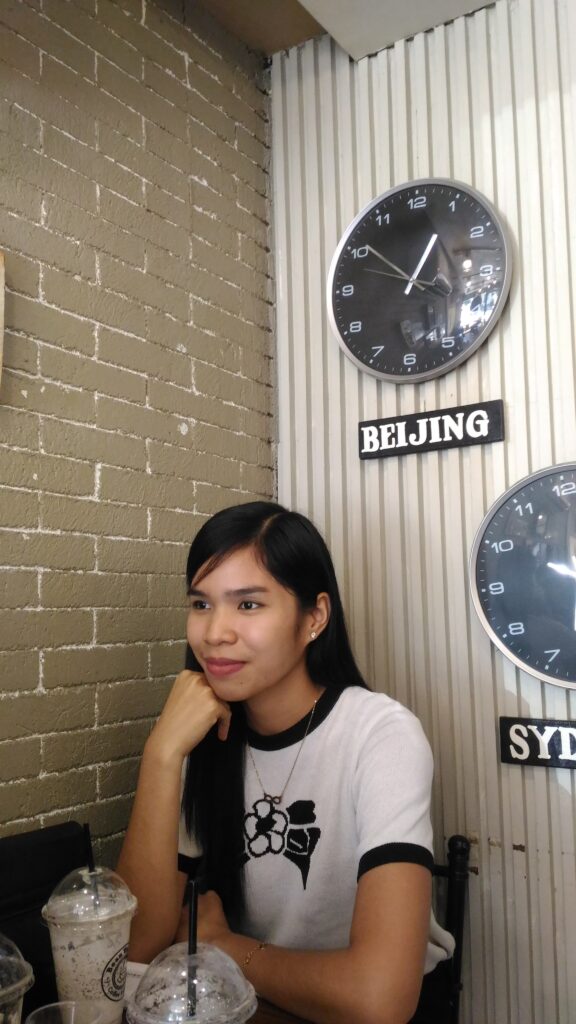If you’re reading this blog post, chances are, you’re an INFJ who is planning to run for office and is seeking for an advice if it’s the right path for you.
If you’re not an INFJ, but still passed the introvert personality with the same concern, this blog post might also be for you.
If you’re unsure of your personality type, you may take the free Myers-Briggs personality test here. As for me, I took this test since high school and until now that I’m 30, I still fit into the INFJ personality type.
I Was A Church Volunteer, Not a Politician
In 2018, I ran into office during the Philippine barangay elections under the Sangguniang Kabataan (SK) council for the SK Chairman position. I was 22. Back then, I worked at a corporate job and volunteered at our church during my spare time. As a church volunteer, I was part of the lectors and finance ministry.

It wasn’t a part of my career plan to enter politics. That changed when some fellow church volunteers encouraged me to run for the highest SK position since no one challenged the incumbent youth group. Specifically, one church volunteer who strongly pushed me is the daughter of the current barangay chairman. They’re distant relatives from my father’s side, but we’re not within the second-degree of consanguinity under the proposed Anti-Political Dynasty Act or Bill of 2025.
The first sign for me was the hesitancy. My mom, too, told me about the outcomes if ever I run and win. But in the end, because of the people who pushed me, I filed to run for office.
Two Weeks on the Trail
When running for public office, to be considered by voters, you need to put yourself out there in public. With the start of the campaign period for 2 weeks, I showed up and introduced myself to the people with the role I wasn’t sure if I fit in the first place.
It was 7 years ago, but I still remember the first day of the campaign. We gathered in the heart of the city. Our SK party line-up stood on the back of a pick-up vehicle for the motorcade. As it began, the drum-and-bugle band in our convoy could be heard by everyone. As we passed through the streets, we waved and smiled at the public until my cheeks went numb.

As the campaign period continued, on weekends, I went to communities to shake hands, greet strangers, introduce myself, and give flyers. On weekdays, I signed off at work by 5pm, change from my office uniform to our campaign shirts, and head straight to nightly campaign rallies. I was going to the barangay hall, sitio covered courts, and communities to make rounds being the youth party’s chairman and main speaker. I delivered the same speech and spiel each night until my voice got hoarse. I received feedback from the public that I spoke well.
By the time I go home at midnight, I felt hollowed out being an introvert with the drained energy and kept bracing the social media disagreements between supporters and the opposing party. Aside from the schedule, the hardest part was seeing how the factions formed in places I once considered safe which is the church community.
Facebook wasn’t the main battlefield in 2018 for political disputes, unlike right now where supporters bicker each other online as a result of contrasting views. But debates on the comments section that time were still personal.
Forgiven, but not forgotten. I’ve forgiven those people a long time ago and had good relations with them right now as I often saw them at church while I was still volunteering, up until December 2021. Yet, I won’t forget some of the hostile and accusation-heavy comments I read on social media that are meant to provoke.
It’s a reality in the Philippines that people get blinded as a result of political differences among family members to the point that they’ll abandon them if they don’t support the same candidate. Moreover, it was a good experience as I got to see the true colors of people and learned to be careful in dealing with them.
Though I was displeased that time, I’m glad I didn’t say a word at the height of my emotions. I can’t please other people. Being citizens of a free country, we are entitled of our opinions. Anyway, the past is past, I’ve moved on, and life has been so good right now.
The Philippine Campaign System Up Close
With this experience, I got a close view on what the Philippine campaign system looks like. It felt less like public service and more like passing through gates. There are purok leaders and the price of entry is having utang na loob or a reciprocal loyalty to someone who has shown kindness to you.
These leaders will list the people in their community who will receive something. Voters have the expectation that the help from the politicians should be tangible during these times such as giving ayuda (aid or relief items) and allowances which are dressed as outreach programs.
At the same time, logistics were constant with the giving of sample ballots and money to bribe voters to cast their vote to the political candidate. I saw how some of the candidates did these with their machinery which really drowned out their integrity. I don’t know about the people in the party I belong to. Truthfully speaking, I haven’t shelled out a single peso to buy votes to the people. Sadly, if you won’t play the game, you are on the wrong side.
Why INFJs Clash with Politics (From My Experience)
1. Depth, Performance, and Energy Drain
INFJs are more prone to experience burnout among the other personality types. Also, as an INFJ, I value depth and one-one-one interactions. Because of this, campaigning demanded the opposite such as having constant visibility and instant takes on complex issues. After clocking out of work at 5pm, I had to be in public to smile and to speak with the same lines I say in covered courts and sitios which drained me.
The nightly performance, pressure to bend rules, and a culture that rewards short slogans over real plans showed me that politics isn’t my lane, even if I could deliver a decent speech when needed.
2. Ethics in a Messy System
INFJs make career decisions not through worldly standards of success, but through meaning and personal fulfillment that their work brings out. Also, work environments and systems that don’t align with their values can be hard to navigate for this personality type.
With this, the campaign system I witnessed is contrary to my core values. There were temptations to play along with the usual tactics that everyone does during elections. Maybe tolerating those would have improved my chances. Yet for me, I chose not to play the game, so I accepted that it likely made me the less viable candidate for the position.
Why I’m Not Vico Sotto (And That’s Okay)
Mayor Vico Sotto, a promising public servant in the Philippines, has been redefining government leadership. In a corrupt country, it’s refreshing to see someone being a recipient of the global anti-corruption champions by the U.S. Department of State. The public admires his political will. He’s courageous to make unpopular decisions and to show up in public even if it’s noisy and unfair. He knows what he’s doing based on his educational attainment, work experience, and track record.
My experience during the campaign showed that I’m far different from Mayor Vico Sotto. He’s a role model that all politicians in the country should aspire to become.
As for me, I could fake a smile, wave to the public, and give speeches, but keeping up to that pace, handling nonstop attention, and absorbing political conflicts on social media every night drained me fast. I can perform for a season, but I can’t live there.
I don’t have Mayor Vico Sotto’s level of courage and that’s okay as I’m wired differently. Through time, I realized that my strength lies when I work behind the scenes such as strategizing plans and systems, doing personalized work, calm problem-solving without the show, and doing work that aligns with my values.
In line with this, in any type of organization most especially in the government, good governance needs both types of people: The front liners who carry the spotlight and the builders who make programs work. It doesn’t mean that we need to copy Mayor Vico Sotto. Rather, it’s choosing the lane where we’re most aligned with our values and useful with our knowledge and skills.
I Lost But I Felt Relieved
I remembered going to a cafe with my fellow youth members after the election. When I knew I lost, my first feeling was relief. I finally got to exhale physically and mentally. Nightly rallies after work, forced smiles, and political disagreements to worry are done.

It’s not about being passive about what I did and not caring about the public’s welfare. It was the campaign pace and politics around that didn’t fit me, which I hadn’t prepared and considered of when I decided to run.
I still regret the time I lost in pouring into something that wasn’t really my choice, but I don’t regret the lessons and experiences I gained. Though I finished a Toastmaster’s class a year prior into running and practiced speaking in a room, real experience is still the best teacher. It’s very different to go through public speaking under pressure in a real audience, but I’m grateful for it. I’m thankful to the people who believed in me and for the lose because I might have been ineffective and unhappy inside a system that asks for compromises I can’t make. I lost a closed door, but it opened a clearer path that matches who I am and how I want to serve.
Why I’m Glad I Didn’t Work In Government
I grew up with my parent’s advice that working in the government is good due to stability. This belief led me to set a goal of working in the government after I graduated from college. I also saw how my father worked for almost 40 years in a government agency until his retirement, which I equated with a secure career. In the Philippines, boomers who have worked there in beginning of their careers cling to that job until retirement for the same reason.
When I gained sufficient years of experience working in the private sector, I began sending applications to public agencies and waited for a call, but I didn’t receive any feedback from the HR.
I doubted myself if I really had what it takes to work for the public sector. That pushed me to pursue an MBA degree to be better. While facing the rejections, I also witnessed the experiences of some people I know who work in the government.
Salary releases and promotions are often tied to politics and connections in the system. Someone’s tenure could be at risk as a result of a new administration. I questioned the irony of what’s happening in real life in that system versus the belief that my parent’s sold to me.
Looking back, I’m glad I faced those rejections as they are redirections to where I’m meant to be. (Thank you Department of *** and Local Government of *** for rejecting my applications).
I’m relieved I didn’t end up in an environment that would ask me to bend my values just to move forward. Moreover, I believe public service is still important. But for me, it doesn’t have to be through a government post. I can serve in different ways that aligns with my core values.
If You’re An INFJ Being Pushed To Run
If were to go back and asked myself if I should run for office amid people pushing and encouraging me to do it, I could’ve trusted what my gut was telling me.
If no one is pressuring or encouraging you, would you still run?
I could’ve have wrote down the genuine and superficial reasons for running. Ask yourself: Do you care about a problem in your area that you might possibly solve once you win or do you just want to satisfy the people’s expectations and chase for fame and money?
If people are still pushing you to run even if you said no, you could say, “Thank you for believing in me, but I don’t feel called to run.” You’re not rejecting a service as you’re only choosing a lane that fits you.
On the other hand, if you decide to run, consider other aspects of your life that might be affected during the campaign period and the possibility of winning the seat.
Better Service Career Paths For INFJs
I learned that I don’t need a title to serve. One just needs to know the path we’re wired into. Here are some agencies that you might consider working or volunteering:
1. Non-profit agencies
These agencies operate for charitable or socially beneficial purposes rather than to make a profit. They can be religious, scientific, charitable, educational, literary, health, or animal welfare purposes. Working with these organizations fit INFJs because of the values-aligned work.
Some of these agencies are:
- PAWS (The Philippine Animal Welfare Society)
- Pawssion Project
- CARA Welfare Philippines
- Teach for the Philippines
- Philippine Red Cross
- Gawad Kalinga Community Development Foundation
- Parish Pastoral Council for Responsible Voting
2. Social Enterprises
Social enterprises are created to achieve specific social objectives as its primary purpose. They maximize profits while also maximizing positive impacts on society and the environment. The profits generated are primarily used to fund social programs.
Some of the these businesses are:
What I Know Now
I never planned to be a politician, but I said yes because others wanted it. Seven years later, I finally own that it wasn’t my path.
Running for office taught me what my personality and core values had been trying to say all along. I could force the performance being in public, but I couldn’t fake the fit.
Being pushed to run showed me the cost of saying yes to pressures and the clash between my values and a corrupt system.
Despite this, I still believe in public service, but I just don’t need a title to do it. The rejections that once bothered me has redirected me to a work that fits what I value the most. I admire leaders with the stamina and willpower to live in the spotlight and challenge the system like Mayor Vico Sotto, but my strength lies in building steady systems behind the scenes.
So, if you’re an INFJ being nudged to run, choose the path that protects your values and your health. You can help your community without being in the public eye because service is not a position. It’s the work you’re willing to do consistently in the place that fits you best.








Leave a Reply